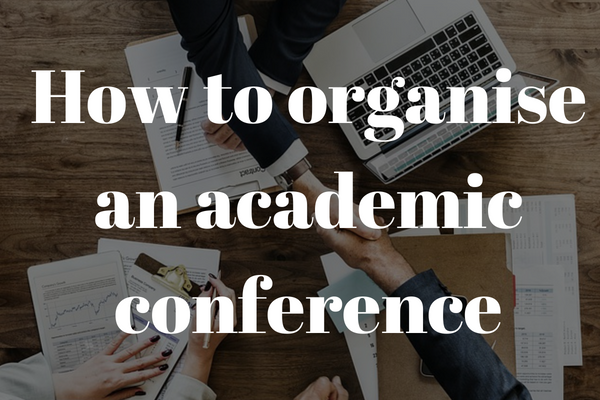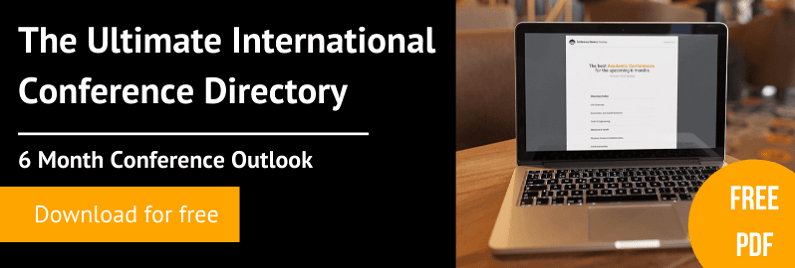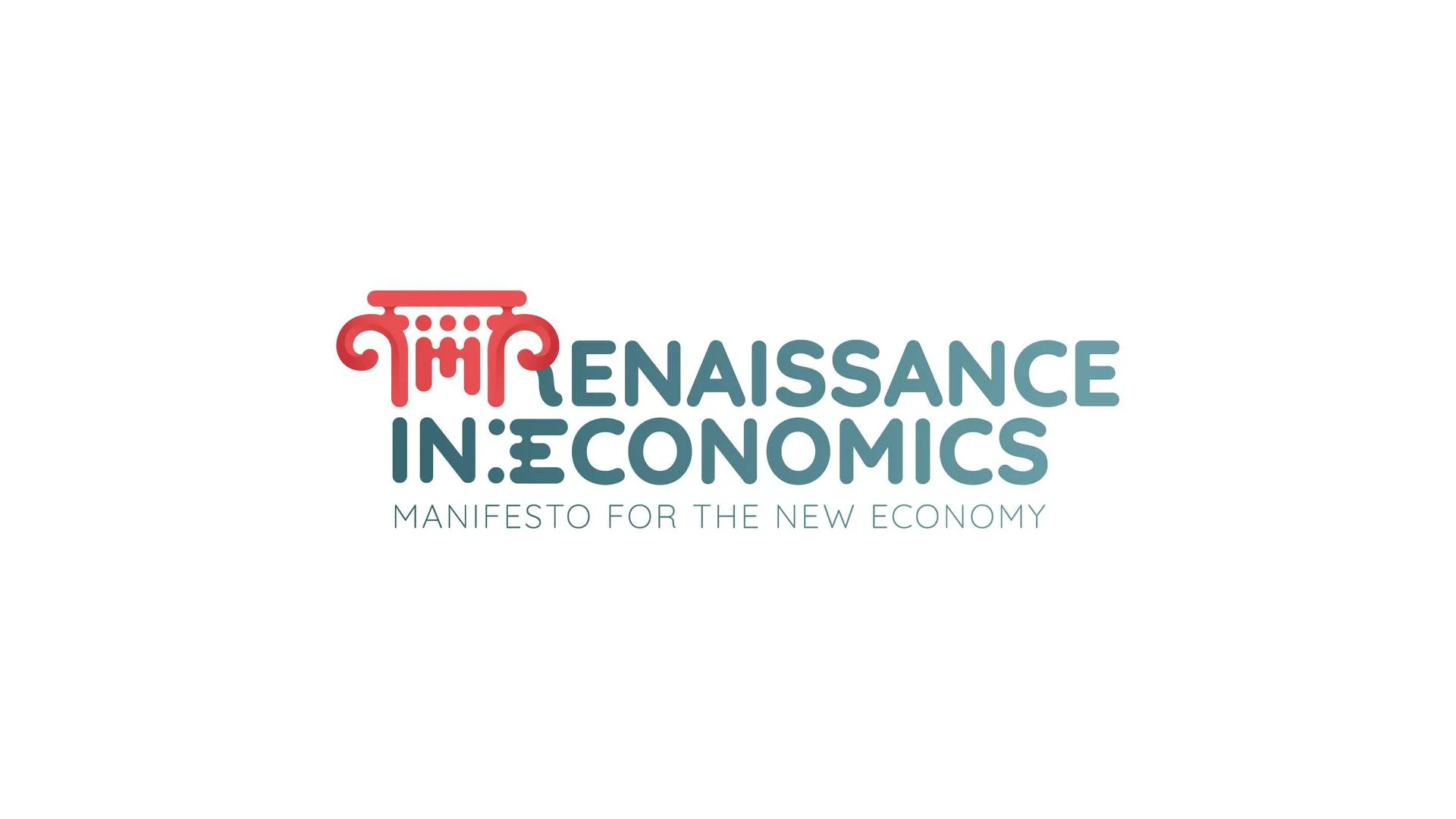
How to Organise a Conference
Read a summary using the INOMICS AI tool
Organising a conference can be an extremely rewarding experience. Not only can sitting around debating for a few days with a bunch of academics and experts be greatly intellectually stimulating, conferences are also a chance to learn new, predominantly soft, skills, as well as being advantageous for your career.
However, organising a conference is no small feat. A lot of thought and careful planning goes towards getting together so many people, and not only from a thematic point of view - there's also promotion, social media, and logistical details like heating and lunch.
To help you organise your first successful conference, we've compiled a list of things to think about, ranging from finding an appropriate theme and venue all the way to how to get reputable speakers to join you.
If you're looking for your next conference, check out our list of conferences coming up later this year.
Download the Conference Monkey Directory - 6 Month Conference List

In this article:
- The basics of organising a conference
- Finding a theme and getting funding
- The perfect venue for a conference
- Conference technical requirements
- Keeping track of attendees
- Food and drink at a conference
- Damage limitation at a conference
- Inviting speakers to your conference
- Using your network
- Being generous
- Use the big names
- Be specific with topics
- Promoting your conference
- The tried and tested: posters
- Social media
- Email lists
- Shameless self-plug
Organising a conference: the basics
As with everything, there are some basics that deserve to be reiterated. Some of these may seem obvious, but so much work goes into a conference it's easy to forget the fundamentals.
Finding a theme and getting funding for an academic conference
The first thing to decide is the topic of your conference. Is there a particular issue which you are interested in, which you feel is not widely discussed in your field? Have there been recent theoretical or empirical developments in your field which would benefit from further discussion? Is there a way for you to bring together researchers from different disciplines or backgrounds in order to engage with a challenging topic? Once you have an idea, ask around your co-workers and friends whether they would be interested in attending a conference on your topic, and whether they’d be interested in organizing it with you. It’s certainly helpful to have other people on your organization committee, to share the workload amongst you – but remember that too many organizers can lead to more discussion than action!
You’ll need funding for your conference, to pay for the travel and accommodation costs of your speakers, to book rooms to hold the conference in, and for light refreshments to serve during breaks. Often university departments have budgets for the organisation of conferences, or you may be able to secure funding from your supervisor, group leader, or grad school. When you request or apply for funding you should be able to give a title for your conference, an outline of the topics to be discussed, and suggestions of speakers that you wish to invite.
Finding the perfect venue
If you want people to attend your conference, then you need to hold it somewhere that's easy to travel to. Usually, that means in a large city with plentiful transport links. If you're expecting international guests then you need to make sure it's easy to get to your location from the nearest airport. You should consider is the price of transport in your area, as if transport is cheaper, more people will be able to fit a trip to your conference into their budget.
Another issue to consider when choosing a city to host your conference is the amenities that the city offers. Your attendees will need somewhere to stay, so hotels and hostels at a variety of price points are required. You also want to host in a city which has some interesting cultural trips and experiences to offer, so that attendees can amuse themselves in their time off. Finally, don't underestimate the importance of good places to go out for food and drinks in the evening – these after-hours social occasions can be some of the most memorable and enjoyable parts of a conference.
Many of your attendees may be visiting your city for the first time, so make their lives easier by giving everyone a map of the local area with the conference location clearly marked on it. You can put copies of the map inside the conference programs to make sure that everyone receives one.
Another issue to think about for visitors who are new to your area is transport information. It's very helpful to make up a sheet which includes information on the public transport options available, and which lines or stops are required to get to the conference venue. Don't forget to mention options for getting to nearby airports or train stations for people who are travelling in from elsewhere.
Conferences are generally held in university buildings, which have the advantage of being cheap or free to hire for internal events, and usually have plenty of rooms for you to spread out in. Make sure that you pick a venue with an appropriate sized room for the number of people attending your conference. Too many people squeezed into a too-small room is stressful and overwhelming, while having just a few people in a huge room feels uncomfortable.
Don't forget the requirements for necessities like bathrooms, places for tea or coffee, and the availability of smaller rooms for workshops or small groups. If you are not planning to organise catering for the conference then you'll need to check if food is available nearby for lunch. Remember, you'll be hosting visitors from out of town who won't know the area, so make recommendations for nearby cafes and restaurants and offer to show people the way if they need it.
Don't forget the technical requirements
You should bear in mind the practical requirements of a conference centre. One thing to consider is the temperature, both outside and inside. Does your venue have heating and/or air conditioning? Being too cold or too hot during a conference can be distracting and unpleasant.
You will also need to think about technical requirements, such as whether your chosen room has a projector and screen which can be used for presentations. Is there somewhere for laptops to be plugged in – both the speaker's and the audience's? If your conference is for more than a small handful of people, you will need a sound system of some kind, so that speakers can be heard across the room.
Bear in mind the needs of disabled visitors too. Check whether your venue is wheelchair accessible, and consider the needs of visitors who have limited vision or are hard of hearing. Making accommodations for disabilities will make your conference more welcoming and more inclusive.
Keeping track of attendees
You’ll want to have some form of registration so that you can estimate how many people will attend your event, and ensure you have enough space for everyone. Remember that some people may arrive on the day without registering, and that some people who register may not attend in the end – so use your registration numbers as a guide rather than an absolute.
It's helpful to give out the contact details of one person who can answer or forward on attendee's queries. This should be someone from your institution – perhaps a student who can answer questions about locations, transport, and so on.
Providing food for your academic conference
Tea and coffee are academic conference essentials. No one should ever get between an academic and their caffeine supply. Setting out tea and coffee (and biscuits, if you're feeling generous) in the morning and the afternoon will go a long way to keeping your attendees happy.
If you have the funding and/or desire, you could even provide a proper lunch - even if that's just some sandwiches and a glass of orange juice. If you're going to be serving food, whether it's small snacks or a full meal, then try to include options like vegetarian, kosher, halal, or gluten-free. Be aware of common allergens such as nuts and be sure to label food accordingly, especially if it's served in a buffet style.
Prepare for the worst
It seems to be a feature of every conference: there will be at least one time that a microphone cuts out or a projector doesn't work. Be prepared for this by having plenty of spare laptops available, as well as any adaptors which might be needed. If possible, see if you can get an IT support person to be available for the day to fix any technical problems as they arise. Moreover, at the start of each day, quickly go round the larger rooms and make sure that the microphones are set up and working acceptably. This will save a lot of messing around later if there are problems.
But it's not just IT problems. Make sure to leave some wiggle room in your schedule. Try not to schedule events or talks exactly back to back. Remember that people need to move from one location to another and that sometimes talks or discussions will run on later than expected. Where possible, build 5-10 minute breaks into the schedule to allow for this.
Inviting speakers to your academic conference
When you're organising an academic conference, you know that you want the top speakers from your field to attend. But how can you maximise the chances that they will accept your invitation?
Once you have a source of funding, you can start to invite your speakers. Don’t be afraid to be ambitious with this! Often senior academics or famous figures have extremely busy schedules, and may not have the time to attend your conference. However, people are usually happy to be invited, and even if they cannot attend they may be able to suggest other colleagues who could be interested in attending. The further in advance that you begin inviting people, the more likely that they will be able to attend, so do get started early.
Make use of your network
You'll have more success in convincing senior speakers to attend your conference if you can make use of your network. Do you know anyone who is working in their department or at their institution? If so, reach out to them when you first send out the speaker invitations. Let your network know about your conference plans and ask them to put in a good word for you. This can help because top speakers will receive so many invitations that they might forget about yours or not have time to consider it fully. If a colleague recommends you and your conference to their interest, they're more likely to consider your invitation and to accept.
One of the most important things you can do to increase the chances that a speaker will attend your conference is to ask them far in advance. Senior academics have busy schedules, and top speakers even more so, and their calendars will fill up fast. If you want them to speak at your conference, especially if they live far away, then you want to give them plenty of notice. Six months is a good minimum, but realistically you might need to give up to a year's notice in order to find time in the calendar of the heads of your field.
Offer to cover travel and accommodation
If you are inviting speakers to a conference, it is generally expected that your institution will cover the speakers' travel and accommodation costs. Some conferences will offer honorariums of up to a few hundred Euros too, but how common this varies between fields. If you are in need of funding, check whether your institution or department has a conference budget which you could use. When you send an email inviting someone to speak at your conference, make it clear where the conference is and that you will cover their travel and accommodation costs. The potential of a free trip to an interesting location is appealing to everyone!
Mention other speakers you are inviting
When you write to invite your speakers, do let them know about which other speakers you will be inviting too. Many senior academics in specialist fields know each other well, and letting them know that some of their friends and colleagues are being invited to your conference too will make it more attractive to them. You might want to invite a few more speakers than you are planning slots for – say, if you have time for 4 main talks, you might want to invite 6 speakers – on the basis that some of them will turn you down. But don't send out spammy invitations to everyone you can think of, or you'll make it seem like you're not respectful of the speakers' time and the specific knowledge that they can bring to your conference.
Ask the speakers for specific topics
It might seem like it would be more attractive to offer an open-ended invitation: one that says “please attend our event and give a talk about whatever you like!” But in fact, this kind of vagueness is not conducive to organising a good conference. Firstly, it makes it look as if you do not have firm plans for what the conference will be about, and secondly, it put the onus of deciding an appropriate topic onto the speaker. You can have more luck asking speakers to present a specific topic, such as a concept or an idea from their most recent book or paper. Of course, you can also invite the speakers to present on a different topic if they'd rather, but giving them an idea of what aspect of their work you are most interested in is helpful.
One of the most important things you can do to persuade someone to speak at your conference is to show how the conference will be relevant and interesting to them. Tell them about what sort of turnout you are expecting and what range of topics you hope to cover. Also, if your institution or department has particular expertise in a related topic, let them know.
Promoting your conference
Now you've got the basic organisational parts down and invited some wonderful speakers to wow your attendees, it's time to get promoting your conference so aforementioned attendees actually show up. There are ways of doing this successfully both with a huge budget and with no budget at all.
Making a conference poster
Probably the oldest and simplest way of promoting your conference is to sit down at your computer and . Don’t worry if you’re not very experienced in graphic design – a poster which is simple and conveys the required information will do just fine, no need for fancy graphics work. It’s a good idea to get your poster printed in two sizes – one large full-size poster for hanging up around universities and research institutions, and one small flyer size for people to take home if they’re interested.
Using social media to promote your conference
Love it or hate it, there's no denying the ubiquity of Facebook. So take advantage of this and use Facebook in your promotions. Create a Facebook group for your topic as well as a Facebook event for your conference, and then invite everyone you know in the field to join them. Also, if you are a member of any other professional groups or alumni networks on Facebook, make a post in these groups about the conference to let people know. Finally, don't forget to post about the conference from your personal Facebook page too, as you likely have lots of friends and colleagues who will be interested to hear about your conference.
Another very popular social media site you can use for promoting your event is Twitter. Setting up a twitter account for your conference is quick and easy, and you can tweet information about the conference using hashtags. Speaking of which, do create a hashtag for your event, and encourage people to use the hashtag before, during, and after the conference to share their thoughts and ideas with other conference attendees.
And don't forget about Instagram. Not only can Instagram be helpful for promoting your event before the fact, it's an excellent way to keep people who couldn't make it up to date with the conference as it occurs. You can take pictures while you're organising to build hype for the event, and it's a great way to get people to return the next year if you decide to repeat it.
You could also set up a blog for the conference, using a website like Medium. If you have a committee working on organisation, then you could ask each member to write a short blog post on a topic related to the conference theme. Even just a few blog entries will help give people an idea of what your conference will be about and get them excited about your topic and your event. Speakers or attendees could also write guest posts for the blog to create a buzz around their talks before the event.
Set up a conference website and utilise email lists
You need to have a website for your conference, but don't worry if you're not terribly technical – your website doesn't need to be fancy. You can use a pre-built template such as one from WordPress or Blogger to set up a simple site. All it needs is to convey some basic information: the dates and location of the conference, the theme and/or key topics that will be covered, who will be speaking, information on how to register, and a contact address for queries.
If you feel like adding more content, it's also useful to put up information like preliminary timetables, information about the city in which the conference is being held, information about travelling to and around the city, and where to find accommodation. This helps attendees to plan their travel, and helps people decide whether they can afford to attend your conference.
If you're a member of any professional mailing lists, don't forget to use these for promoting your event. You can send out an email when you first conceive of the conference, and to remind people of important upcoming dates such as your call for papers. It's okay to send out a few reminders, but don't spam the mailing lists by sending too many emails or the recipients won't be happy!
Or you could use Conference Monkey...
There are a number of websites which promote conferences, including us, and our sister sites which promote jobs and conferences specific to disciplines. (INOMICS promotes economics, and NewEngineer engineering, for instance.) These sites tend to reach a broad audience from all over the world who might not otherwise hear about your event through their network. So head over to our events page for inspiration.
Download the Conference Monkey Directory - 6 Month Conference List
Top Blog Posts to Read:
What's the difference between a conference, a seminar, a workshop and a symposium?
8 Benefits of Attending Conferences
What Should Women Wear to Academic Conferences?
What Should Men Wear To Academic Conferences?
A Guide to Asking Good Questions at Conferences
How To Improve Your Public Speaking
How to Get Accepted to an Academic Conference
-
- Conference
- (Hybrid)
- Posted 1 year ago
Sixteenth International Conference on The Constructed Environment, Universidad de Navarra, Pamplona, Spain
Between 14 May and 15 May in Pamplona, Spain -
- Conference
- Posted 4 days ago
1st Piraeus International Economic Conference (PIEC)
Between 28 Jun and 30 Jun in Spétses, Greece
-
- Workshop
- Posted 3 weeks ago
CESifo Junior Workshop on Labor Economics 2026
Between 28 May and 28 May in Munich, Germany












